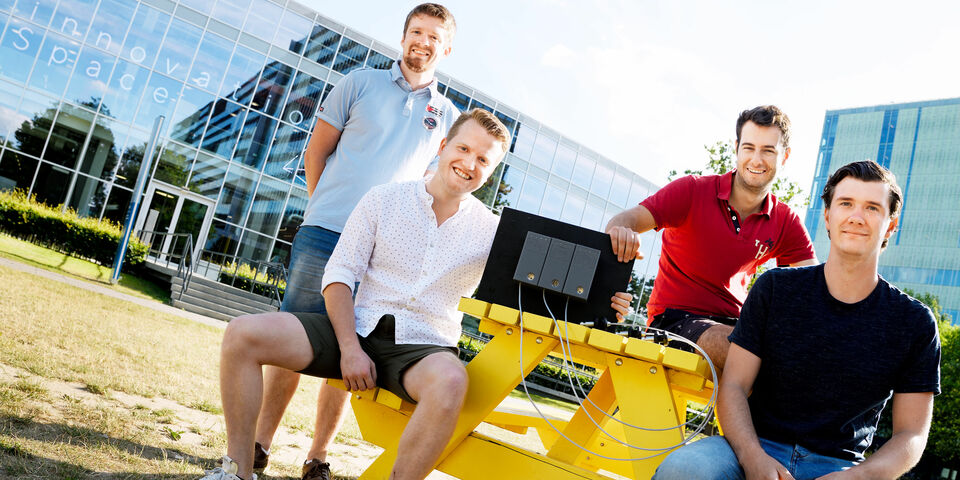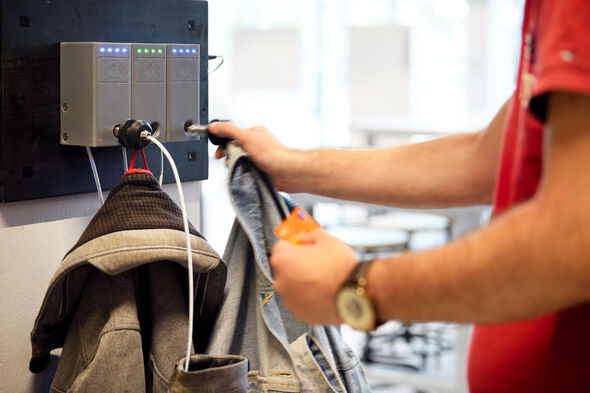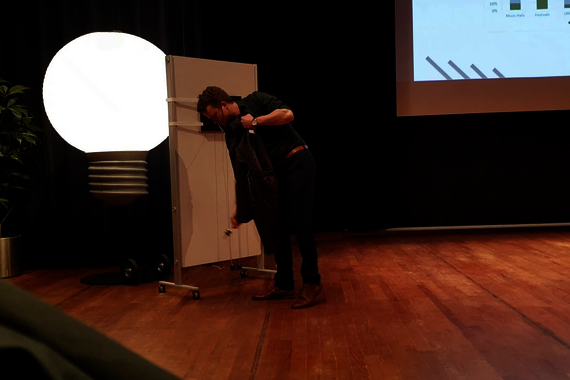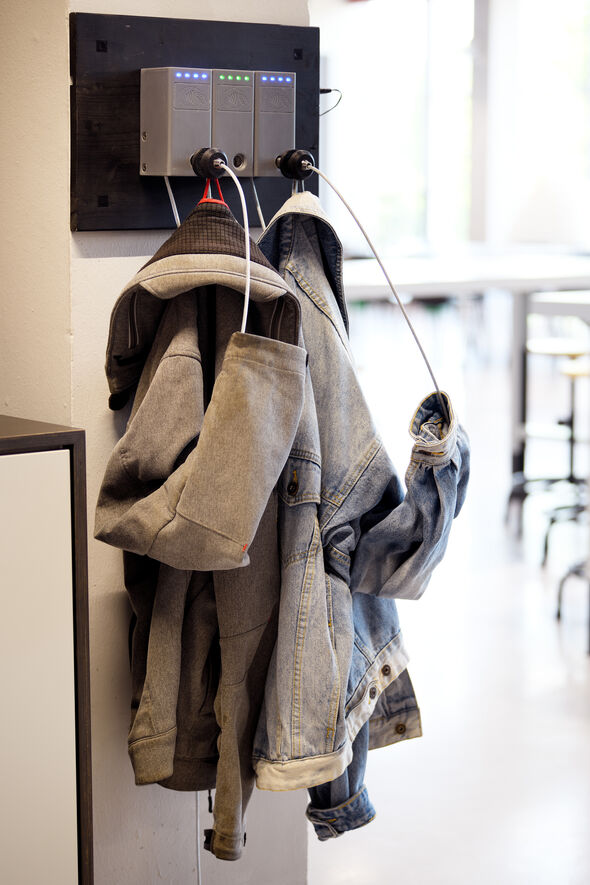TU/e startup secures your coat during a night out
TU/e startup Jakx hopes to go into bars after this summer to run the first pilots with its ‘smart cloakroom,’ a device with which the team wants to prevent the theft of coats. The four students hope that the experience they gain from this will help them bring their product to the market as quickly as possible.
Jakx started two and a half years ago as an initiative from five TU/e students. Today, the team consists of four students: Alex ten Harkel from the department of Industrial Engineering and Management Sciences, and Lennard Katan, Sven Meeusen and Jochem Manders from the department of Mechanical Engineering. The idea for Jakx came out a sense of personal dissatisfaction more than anything else, Manders says. That is, dissatisfaction with the current situation with cloakrooms in bars: “Our coats were often stolen.”
That is why the TU/e students set about developing their own smart cloakroom, which the team intends to use primarily in bars for the time being. This unmanned cloakroom consists of a small box with a cable attached to it, which visitors can pull through the sleeve of their coat and then click into the box in order to lock it. Customers pay with their debit card, which is also used as identification when unlocking the box.
Danger of getting trapped
This smart cloakroom is not the original concept: initially, the men of Jakx wanted visitors to secure their coats to a clamp, an idea for which they won both an award in the ‘prototyping’ category and the audience prize during the 2017 edition of the TU/e Contest. According to Manders, this original concept simply presented too many risks: for the user (because of the risk of getting trapped in the device), and for his or her coat, because of the risk of damage. “You need a different clamping force for each coat in order to secure it safely and not to damage it.” The Jakx spokesman says that the new system isn’t just safer, but also “a bit more intuitive; people are used to locks such as these, for instance for bicycles and laptops.”
Jakx found an accommodation at TU/e innovation Space after the TU/e Contest and has recently been working hard at market research: taking their system to bars and cafés and asking the owners for feedback. And, as Manders told Innovation Origins earlier, these owners are not necessarily very eager to cooperate. “Because they are not the final users, the visitors are.”
Read on below the video.
That is why the team, which was also a finalist at the Golden Lightbulb Challenge in April (see video above), came up with a model whereby a bar owner does not have to make a considerable investment to buy the system. “The idea is that we install the hooks for free, or against a small fee. We share the revenue with the bars,” Manders explains. “We expect a certain commitment from the bars, but they make money instantly. And we break-even on our investment.”
Idiot proof
The pilots that Jakx hopes to start with after the summer will have to demonstrate how the smart cloakroom functions in practice. But first, the team needs to make some adjustments to the system’s design, and implement the payment system, Manders says. “We are also still conducting our market research, both with our clients and our final users. We are finetuning the system until both sides are satisfied.” And that system, the students are told, should above all be user-friendly, safe and idiot proof.
At this point, Manders can’t say in which bars Jakx intends to run its pilots. It also remains unclear when exactly the startup will take its product to the market. “Hopefully soon after the pilots, but that depends on the reactions of the users. We will have to tweak the product until it functions optimally in a bar or café. We hope that we will need to make only minor adjustments, but we could also run into problems we didn’t prepare for.”





Discussion